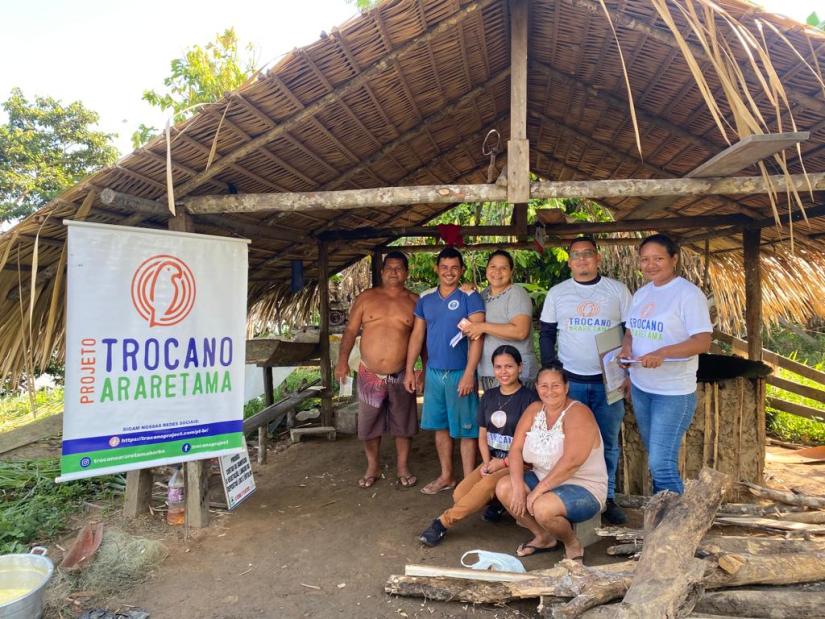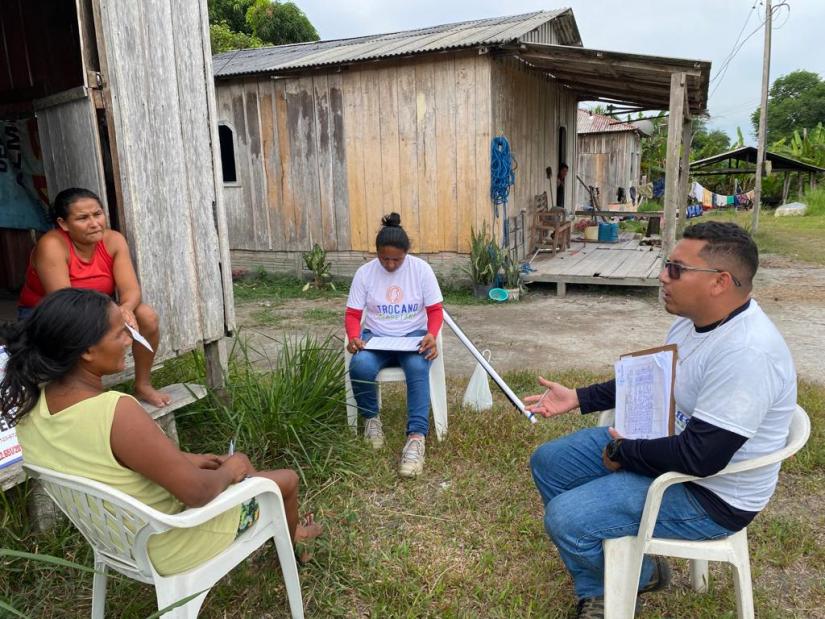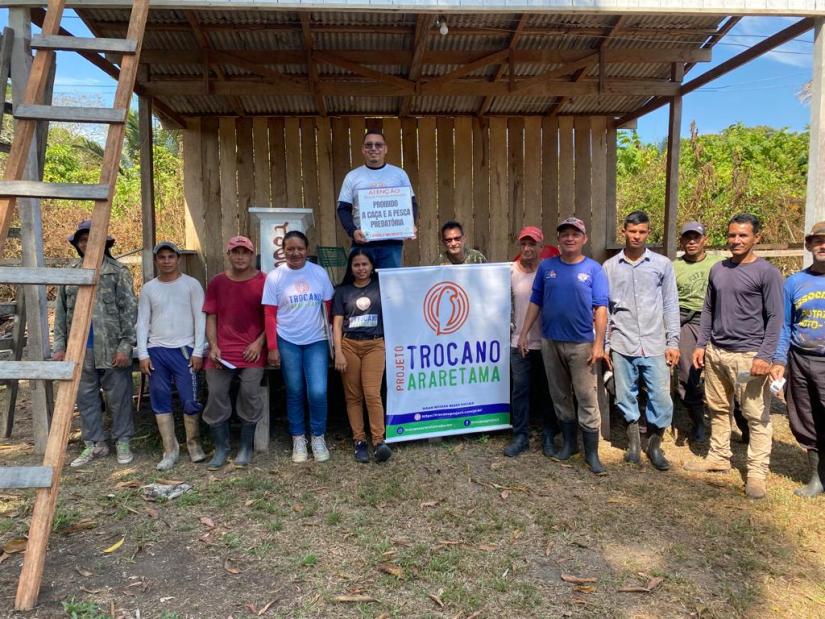Trocano Team carry out an extensive program of visits.
The Trocano team have made 42 community visits in the Trocano Project area in the month of August so far.
The objective of the community visits was to follow up on training that has already been carried out in some of the communities. It was also a useful time to collect updated geographical coordinates of the communities, as they can be transient in their nature. The team were also taking the opportunity to carry out social research within the communities, erect some environmental awareness signs and finally to publicize and increase the awareness the Trocano project.
The logistics of this trip took much planning, which included gathering together a comprehensive first aid kit for the trip. This was necessary due to the remoteness of some of the communities in the schedule that are very difficult to access.

Trocano Team Community Visits: Part I
Early August saw the Trocano Team embark on a 3-day trip to visit 30 communities of the Trocano Project area. These communities were located in the Rio Madeira and Rio Abacaxi areas.
The first communities reached were Castanhal I & II where the team were very well received and were able to accomplish their goals successfully.
The team then went on to visit the larger community of Caiçara. This community has previously received stingless bee training. The team were pleased to witness the development of the meliponiculture by Mr. Victor Lopes who had 23 bee boxes established. Mr. Lopes extended his gratitude to the team for enabling him to benefit from the course of the Trocano project and bring economic benefits to his family and the wider community.

The team were also pleased to meet another bee creator in the Lago do Centro community. Mr. Milas had developed 7 bee boxes since attending the training course.
Having stayed overnight in a very welcoming community, day two continued in the same way for the team. They visited more communities to continue the work of spreading the word about the project and environmental awareness.
Trocano Team well received by community members
During the visits on this day, the community leaders and residents were very enthusiastic about the Trocano project. In the Ararunim community, inhabitants engaged with the team straight away to enquire about bee breeding courses in their community, as they had heard about them and their success from nearby communities. This community has great potential for the creation of stingless bee colonies. This is becuase they have easy access to bee trunks (hollow tree trunks).
Reaching isolated communities of the project area
Some isolated communities were visited during this day of the trip, which were very difficult to access. The reception of the Trocano team was welcoming in these communities. The residents were very excited to learn about the training course options available to them.
The final day saw the team revisit some communities where they had not been able to meet the residents. Particularly, in the community of Puru Grande where another bee breeder Mr. Bento Oliveira, had participated in a Trocano course. He has developed 29 bee boxes divided between 5 species. Mr. Oliveira commented that he was very grateful to the Trocano project for delivering the course, because he already achieves additional income from the bees.
Team Community Visits: Part II
August 11th saw the Trocano team embark on another multi-community visit on this day. This time they were concentrating on the communities of Rio Madeirinha and Rio Autaz Açu, totalling 12 communities.
The objective of the trip was the same as the trip earlier in the month. This is to follow up on training that has already been carried out in some of the communities. Also to carry out social research within the communities, establish some environmental awareness signs and increase the awareness the Trocano project.

Revisiting recipients of previous training courses
The visit to the Viva Santana community was particularly worthwhile. The team were interested and concerned to learn that the residents had experienced problems with predators in their bee breeding boxes. This had hindered their progress in applying their knowledge and the execution of this specialty. The residents requested that they receive some additional training to assist them in making a transfer to breeding trunks. This is to be scheduled with the community as soon as possible.
Again the team were able to visit some remotely situated communities, who were very pleased to welcome the Trocano team. These communities were pleased to receive information about the courses and benefits available to them as part of the project benefits.
It was clear during the visits made in these communities of the Rio Madeirinha and Rio Autaz Açu that there is excellent demand for courses focused on livestock activities. These are such as milk processing and pasture improvement.
Understanding community needs is paramount
The Trocano team were humbled by the opportunity to visit so many communities during these August trips. The whole team appreciated the chance to disseminate knowledge of the project face to face with the residents. They also value the opportunity hear from them their desires from the implementation of the project.
It is important for the Trocano Project team to be able to understand and observe the reality faced by the communities within the project area. It is invaluable to be able to know better the inhabitants with which we work, and identify resource mobilization. Community needs are very different from location to location, and the activities developed in each area should be tailored to their specific needs.








